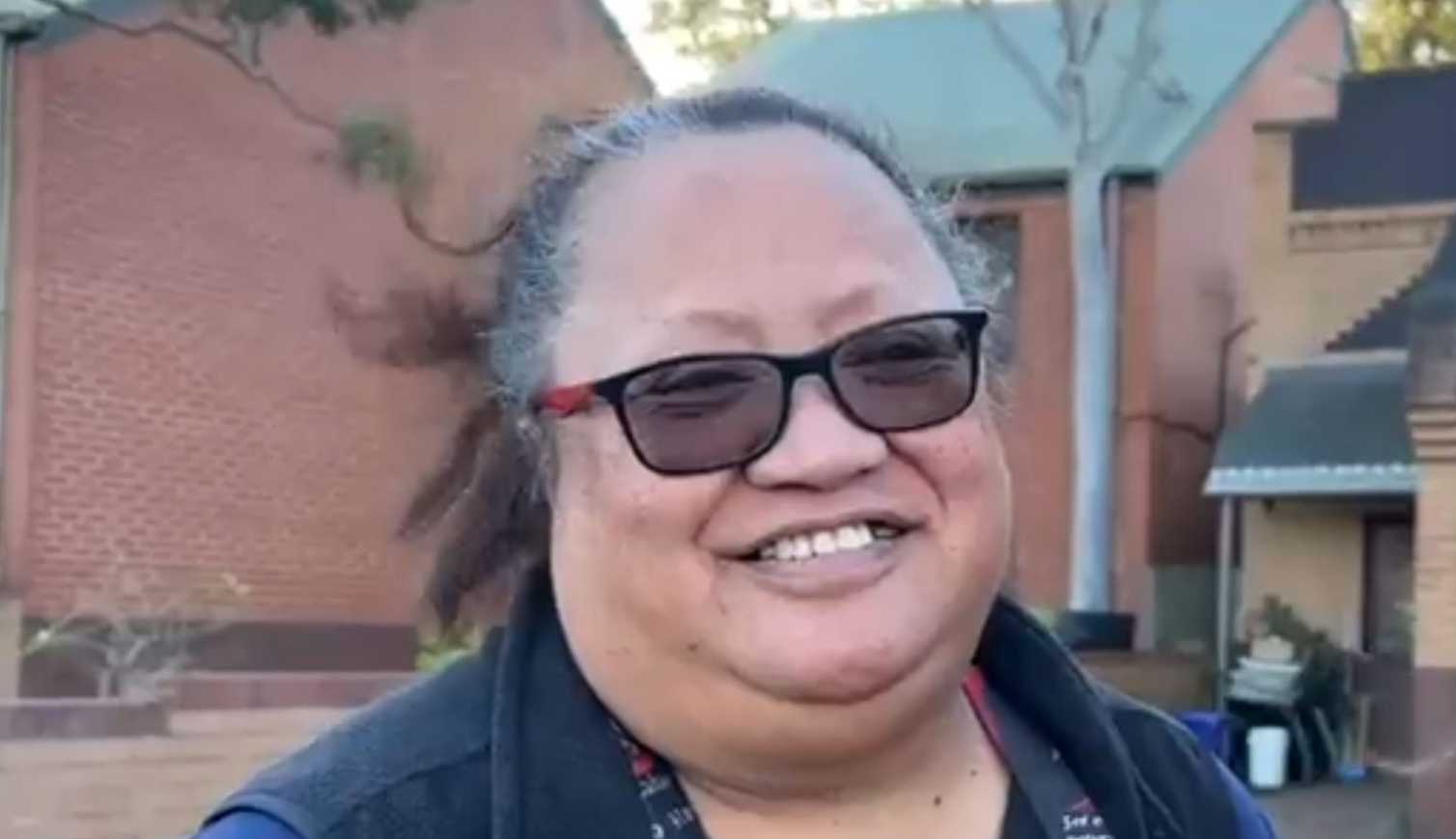
Airbnb is eating the neighbourhood
Opinion by JANE HEARN
Last month the NSW “Airbnb Policy” was quietly gazetted by the Minister for Planning, Mr Robert Stokes MP. This is a major planning reform that permits all housing to be used for short stay tourism.
It takes some chutzpah to give in to tourist Platforms in the middle of pandemic with housing prices soaring.
There has long been holiday letting along the coast, and some corporate lets in the city have gone under the radar. The impetus for this policy is the growth and illegal penetration of Airbnb into urban apartments. In Sydney, the arrival of Airbnb has led to an explosion in apartments being switched from regular rental to the lucrative tourist market, especially in the City and Eastern Suburbs.
Airbnb is Eating the Neighbourhood
The reality is Airbnb is concentrated in high rental areas. It is consuming housing, pushing workers further from employment and hollowing out neighbourhoods. The figures are daunting.
By October 2015, there were 10,473 listings for Sydney on Airbnb and that figure had doubled to 24,038 by the time of a Government’s Options Paper in 2017. In 2017, Professor Gurran estimated that 6000 homes had already been removed from the regular rental market. This is equivalent to 9 apartment blocks the size of Sydney’s World Tower.
The conservative Grattan Institute agreed that long term tenants have clearly been displaced from inner city and beachside suburbs.
By 2021, and despite the pandemic, there are 33,000 Sydney properties listed on Airbnb alone. This includes about 8000 for Sydney LGA; Waverley LGA 4500; and Randwick LGA 3500 (InsideAirbnb.com). Over sixty-two percent are whole properties and, in hot locations, whole properties are seventy and eighty percent of the listings.
The Platform has quickly become the domain of property-management companies.
An independent study of Airbnb in Sydney and Melbourne found forty percent of listings are hosted by someone with multiple properties; and some Hosts have over 120 properties. The impact on many residential strata schemes is severe, with seventy percent of listings in Sydney being apartments.
International and Australian research has shown that even a small drop in housing supply can have a significant impact on rents in a tight market.
The impact of COVID-19 has provided a unique opportunity to examine whether the impact of the pandemic on Airbnb has also led to a decrease in rents. In early 2020 COVID-19 delivered an economic shock and a sharp drop in international tourism and migration. This contributed to an increase in supply and a sharp drop in rents in the tightest markets.
The Centre for City Futures at UNSW has shown a direct link to Airbnb neighbourhoods where the supply of long-term rental stock has increased in response to reduced Airbnb activity. The results indicate that rental prices have fallen proportionately with Airbnb activity, up to 7.1 percent in the most active Airbnb neighbourhoods.
The recent AUHRI investigation into marginal and insecure tenure during COVID-19 has shown that properties have also moved onto the informal housing market. Typically, these rentals were offered on a weekly or monthly basis outside the Residential Tenancies Act 2010 (NSW) to enable hosts to switch back when tourism rebounds.
The study shows a clear link between short term rental and increased pressure on rents and insecure housing, which is likely to increase as tourism rebounds. The planners argue that now is the time to tighten regulation of the STR market to retain and improve on gains in the price of rent experienced in high demand urban areas.
NSW Green lights Airbnb Industry
Around the world communities have been taking action. Investment apartments are being banned from listing on Platforms. Residents must get a permit, STR is capped as 60 or 90 nights and limited to “one property”. This is the model adopted by San Francisco.
This is the kind of meaningful action Sydney needs, right now.
Instead, NSW is throwing open our doors to the global Airbnb industry to meet some unspecified tourism goal. It is designating short stays a “residential use” and declaring it a “minor impact” in order to grant the industry “exempt development” status under the Environment Planning and Assessment Act 1979 (NSW) (EPA).
Tourist letting will be part of a new Housing SEPP as just “another housing tenure”, disguising the loss of thousands of apartments to the tourist market. There will be no controls on the number of apartments in a single building that can be converted to tourism and no threshold to trigger a “change of use”.
“Home-sharing” Double Speak
The new policy permits whole apartments to be let for 180 days in a year. There is no minimum period, it could be an hour, a day, a week. In addition, short-stays of 21 days or more (up to 3 months) will not be counted at all.
The experts agree that 180 days will not drive apartments back to the rental market. This volume of tourist letting is not a “residential use”, whatever the Minister might say. The 21 day + loophole cements STR as a full occupancy year-round tourist and visitor business. It will also undermine the Residential Tenancies Act 2010 (NSW), and Airbnb is promoting itself as a Netflix style landlord.
The promised occupation cap of 2 persons per bedroom has vanished. This is despite evidence that overcrowding is the cause of nuisance and fire risk. The problem of overcrowding and “Airbnb apartments” was specifically named in reports on Melbourne’s Lacrosse and Spencer Street fires. It is also what keeps Airbnb apartments cheaper than a licensed hotel or serviced apartment in the same location.
Limits on the number of rooms have also been removed AND the “Host” may let to as many different Guests (unrelated parties) at the same time, without the Host present.
This policy is not just permissive, it is reckless.
The protagonists of the “shared economy” make a lot of grand claims but rarely pay for the real-world costs of their business. In older blocks, tenants have been evicted without so much as a murmur. People have bought off the plan only to find their brand-new dream home is starting life as a “quasi-hotel”. In some apartment buildings, anecdotally, residents are coping with thirty, fifty and seventy percent of investment units that have gone straight to the “Airbnb market”.
The pattern of domestic tourism is every weekend and every public holiday year-round 52 weeks of the year. It degrades the quality of life of residents, violates their security and privacy and raises their costs. There is also a slew of unlicensed “Airbnb managers” to contend with.
They are taking the profit and handing over keys – even when it’s clearly illegal.
Residents Vote “No” to Airbnb
The Owners Corporation Network (OCN) campaigned hard to get the voice of residents heard above the Airbnb rhetoric.
Eventually, and on the verge of an announcement, a Party Room revolt sent the Premier and then Minister, Matt Kean MP back to the drawing board. The smart money now is on the hundreds of schemes voting “No” to Airbnb. Domestic travel is strong and the “No STR” by law is the only protection when borders reopen.
Buyers and tenants will also be checking if a “No STR” by law is in place.
The downside is the Government delivered an “Opt. Out” rather than an “Opt. In” model. Strata by laws require seventy-five percent of the vote to pass. There is little chance such a by law can get adopted where Airbnb has already taken hold. In a small block, just one or two absent Investors can decide the future of the scheme.
It means that some of the worst “quasi-hotels” are here to stay. Even with a by law, it is difficult, stressful and costly to enforce them against multiple operators.
Register of Quasi Hotels
The new planning law requires STR premises to be registered. It will also be illegal for Platforms to list an unregistered-premises. If the Register is working properly, a lot of illegal Airbnb operations should disappear. There should be fewer pop-up brothels and illegal subletting by “tenants” with multiple leases.
All eyes will be on the Commissioner for Fair Trading to ensure the Platform obligation is enforced. Local Councils will also need to invest in monitoring listings, audit the Register and work with Strata Schemes.
There are some serious flaws that will make this work harder.
Firstly, NSW has an Open Data agenda but the STR Register will not be public. Secondly, it does not record the Strata Plan number or identify a non-primary from a primary home. Thirdly, there is no linkage to By Laws. It is enforcement and matters like this that must come before the Public Accountability Committee of the NSW Legislative Council, Chaired by David Shoebridge MLC.
COVID-19 Reset
The NSW Government is legalising “quasi hotels” in the name of “flexibility” and the “shared economy”.
It is making housing more insecure and permitting the displacement of tenants. Residents are being left on the front line facing rapacious Airbnb operators and global Platforms. Local Councils are losing the ability to protect housing and residential amenity. Is it really worth it?
In Sydney, Millers Point quickly turned into an Airbnb transit zone once public housing tenants were moved out. A similar fate awaits new developments in Pyrmont, Waterloo and Glebe.
It is time to build on the gains delivered during the COVID-19 lockdown, and regulate Airbnb more tightly.
The day cap should be reduced to 90 or preferably 60 days across Sydney, and the 21-day loophole removed. The flaws in the registration system need to be fixed. It is also time to levy additional charges on Airbnb Hosts to ensure NSW owners corporations are not subsidising the cost of this business.
Jane Hearn is the spokeswoman for the Owners Corporation Network, a not-for-profit organisation that exists to help strata owners navigate the complexities of strata living, from social and organisational challenges to financial and legal issues.









